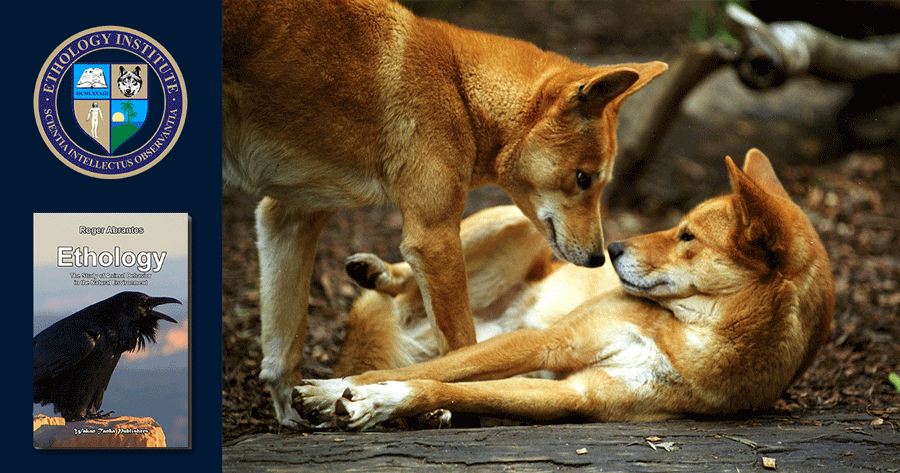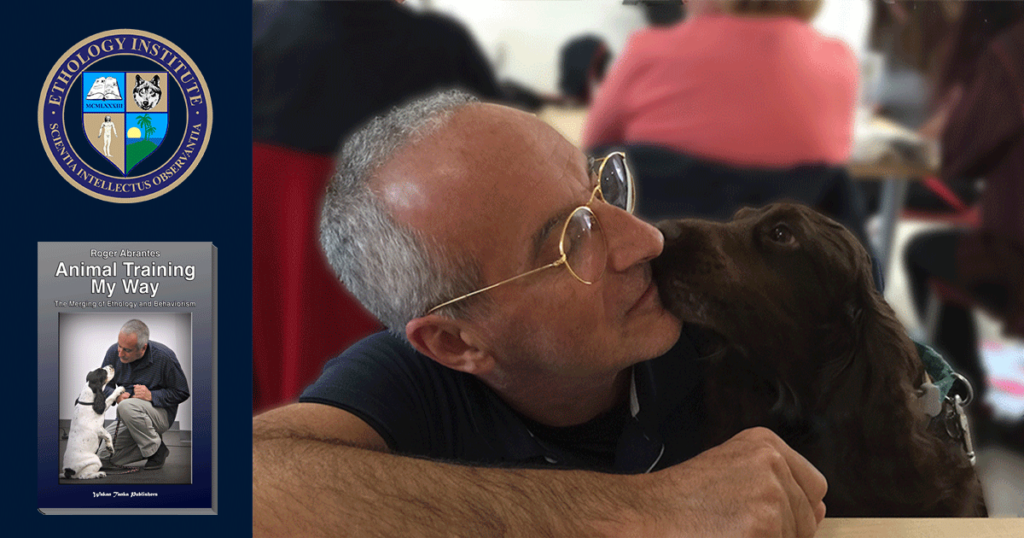Do we understand behavior? The conundrum of the behavioral sciences is that they are not exact sciences in the same sense as physics or mathematics. Behavior is like the spectrum of light: it is as difficult to say when yellow turns into orange as when one behavior turns into another. It is a continuum of quantity, perceptible throughout its duration, describable only when quantity turns into quality.
Friendly, insecure, pacifying, submissive, and fearful behaviors are a continuum of quantity, as are content, self-confident, assertive, dominant, and aggressive behaviors. The distinction between any two behaviors is a matter of function; the borderline separating one category from the next is a matter of observational skill, contextual parameters, and convention; the way we understand it all is a matter of definition.
Our brain wants to tidy up its stored information in small boxes, but once in a while, I like to turn them upside down. It’s good mental exercise, I find, and it helps me keep a good sense of perspectives.
Featured image: Behavior is like the spectrum of light. It is a continuum of quantity, perceptible throughout its duration, describable only when quantity turns into quality (© Illustration by Roger Abrantes with drawings from Alice Rasmussen).
Featured Course of the Week
Ethology Ethology studies animal behavior in its natural environment. It is one of the fundamental courses in your curriculum. A reliable knowledge of animal behavior is the basis to create a satisfying relationship with any animal we train.
Featured Price: € 168.00 € 98.00

Learn more in our course Ethology and Behaviorism. Based on Roger Abrantes’ book “Animal Training My Way—The Merging of Ethology and Behaviorism,” this online course explains and teaches you how to create a stable and balanced relationship with any animal. It analyses the way we interact with our animals, combines the best of ethology and behaviorism and comes up with an innovative, yet simple and efficient approach to animal training. A state-of-the-art online course in four lessons including videos, a beautiful flip-pages book, and quizzes.

